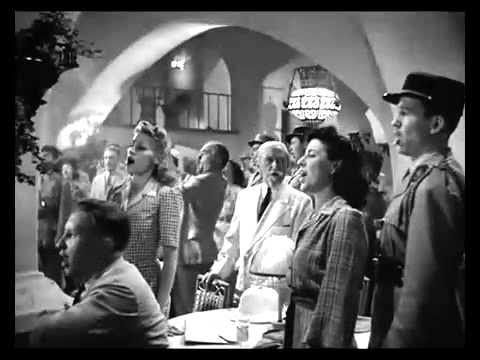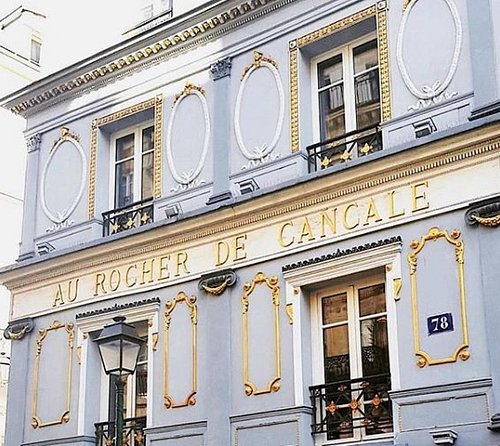French Symbols - La Marseillaise
- Parisian Niche

- Jul 14, 2023
- 3 min read

One of P'Niche's passions is researching, learning, and sharing about French symbols, like the fleur de lys and the Napoleonic bee. We've also tossed around (get it?) the meaning behind Paris' unique Fluctuat Nec Mergitur city motto, the Tricolore flag and even the Phrygian Cap (quite important for the upcoming Olympic Games hosted in Paris). You know what else you are likely to encounter at the Olympics? The French national anthem.
Let's take a P'Niche peek to learn more about France's national anthem - La Marseillaise...

As we so often do, let's hop into the P'Niche Time Travel Machine and head back in time to April 25, 1792. By request of Baron Philippe-Frédérich de Dietrich (Mayor of Strasbourg), who was in need of a catchy rally song for soldiers, (and quickly composed in one evening by Monsieur Claude Joseph Rouget de Lisle), the song's original moniker was "Chant de Guerre pour l'Armée du Rhin." That's "War Song for the Army of the Rhine" for you and me.
Wait a minute, wait a minute - back it up, P'Niche...It's called La Marseillaise, but was composed in Strasbourg? Oui!
As you can pictured see here in this glorious relief, upon Paris' Arc de Triomphe, the song was adopted by volunteers who marched from Marseille to the French capital of Paris (750km or 465 miles!) and captured here oh so artistically - as the French do so well...

These fédérés (volunteers) were openly singing this rally anthem in the streets mere weeks after the song's composition.
In fact, on July 30, 1792, a young gentleman volunteer, François Mireur, who hailed from Montpellier, sang the song at a patriotic gathering in Marseille.
Very quickly, this ditty became the marching song of the National Guard of Marseille.

P'Niche pulls Time Machine over...
Side note, did you know the French National Guard was formed right after the fall of the Bastille and its first commander was Marquis de Lafayette? (Le Swoon...)
If you like French history and tidbits like this (and you know you do), subscribe to join us back in the Parisian Niche.
Okay, "Marchons" (ha!) back to our regularly schedule post...

Lyrically, the song is meant to be a "call to arms" to fight against the invasion of France by the foreign armies of Prussia and Austria.
Check out the (English translation) chorus:
"To Arms, Citizens! ... Let us water the fields with impure blood."
Wow - that's some strong wording!

In fact, you know who didn't love the song and the lyrics? Napoléon Bonaparte!
Whether he saw it as a threat against his now Empirical power (or the fact that he thought the composer has a secret love affair with his wife), Napoléon disowned the song.
Our guy Napoléon dictated that the song was too elitist and he may have had a point...

While openly sung in the streets as a "Revolutionary Hymn" of sorts, very suddenly, the composer, Monsieur de Lisle was accused of secretly being a royalist and tossed into prison.
Quel Bummer...
While this accusation nearly cost him his head to the guillotine (and would have wiped the anthem off the face of books and music sheets all together), the clever composer quickly wrote another tune about King Louis XIV losing his royal head to the "National Razor."
Well, that's one way to save your neck!

Moving forward in time, while considered "musically old fashioned," the anthem did have a musical revival in 1830 upon the overthrowing of King Charles X, during the revolt Les Trois Glorieuses (The Three Glorious Days).
P'Niche PSA - Delacroix' famous (and glorious, it has to be said) painting "Liberty Leading the People" actually depicts these three days of uprising in July 1830 - not the French Revolution, as many people believe - hey, the more you know!

Of course the anthem gained patriotic momentum during World War I, but much more so during World War II, sung in defiance of the Vichy government by the heroes of the French Resistance.
It seems "To Arms, Citizens" held a deep and true meaning here, calling for people to rally (even if secretly) to defend their homeland.
Gives you chills, right?

Moving through time to the 2000s, the lyrics of the anthem have come under controversial light, political debate, and much discussion.
P'Niche is not educated enough to discuss politics, so tends to take the song at the face value of the time of its composition / Revolution and believes the song belongs to all French citizens.

These days, typically, only the first verse and chorus are played (for example, when you see a French person get a gold medal at the Olympics.
That said, the song is pretty long - you can listen to the full version (with English subtitles / translation) here.
What do you think P'Nichers? Will you play this anthem at your Bastille Day pique-pique? How does La Marseillaise compare to your own national anthem? Sound off (get it?) in the comments below et à bientôt!





Great article Chrissy! I am behind !
I'm still humming and will continue to do so all day, Chrissy. I noticed in the above relief that the leading fédéré is a woman! Napoleon could not have been alive when that appeared on the Arc de Triomphe! Thanks again for an insightful, educational and funny, (Well, that's one way to save your neck!) post! Joyeux 14 Juillet!